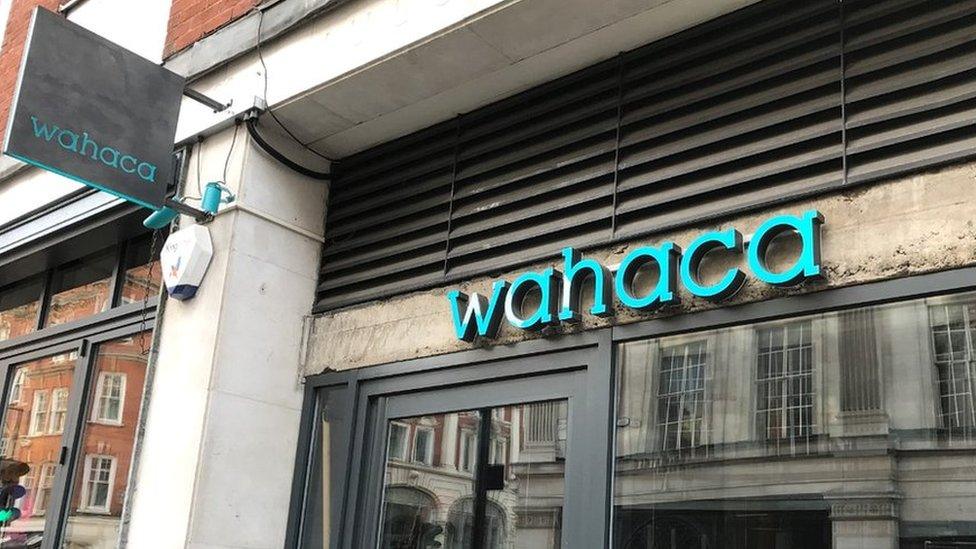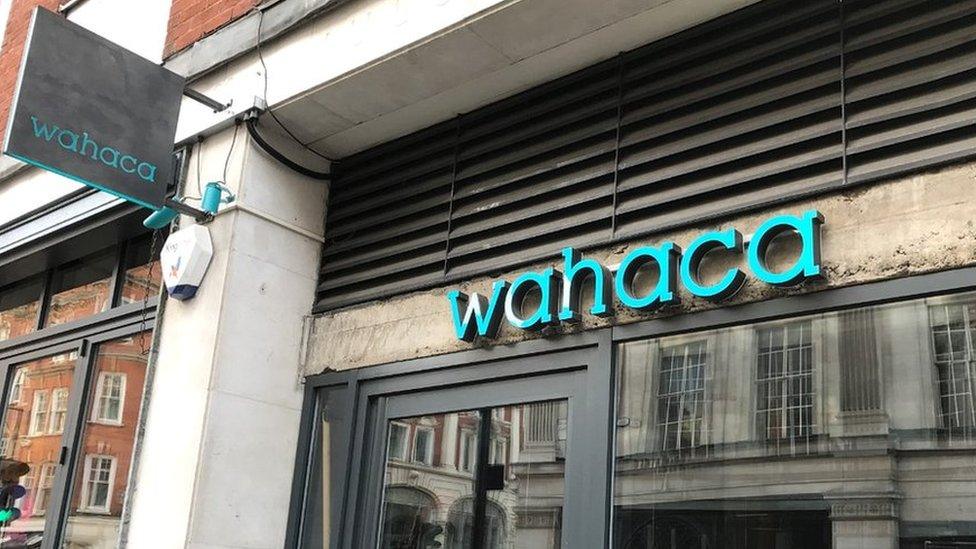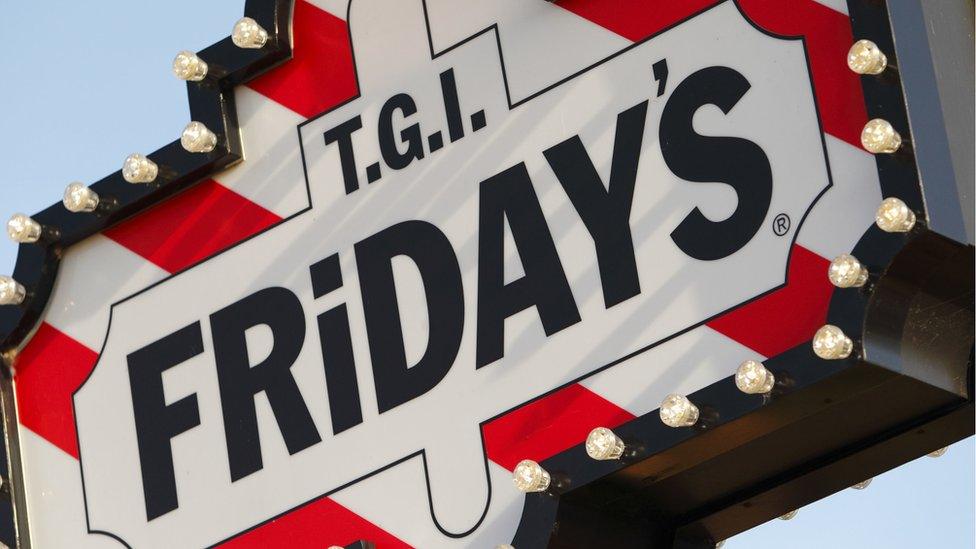'I lost £50 when diners left without paying'
- Published

Sarah wasn't even in the building when a table she had been serving left without paying - but she still had to cover £50 of the bill.
She had left the restaurant 30 minutes earlier, however, her manager told her she would have to split the £100 bill with the other server.
"I was absolutely furious," she tells the BBC.
"I broke my back for that company, working 12-hour shifts up to six days a week. I felt so undervalued."
Sarah - not her real name - worked for several branches of the Filling Station restaurant chain between 2012 and 2018 and says it was "accepted" that staff would foot the bill in the case of walkouts.
The Restaurant Group - which owns the chain, along with brands including Wagamama, Frankie & Benny's and Chiquito - insisted it did not take any money from servers to cover customer walkouts.
However, Sarah claims the practice was common across all the branches she worked at for the company and it happened to her personally about five times.
She says servers were responsible for up to 10 tables at once and even had to make their own desserts.
"You would be in the back making five desserts and then you would go out and a table had left without paying and you would still be expected to pay," she says.

Mexican restaurant chain Wahaca has 25 branches across the UK
This week Mexican restaurant chain Wahaca tightened up its policy on walkouts, after a waiter was told to pay part of the bill when his customers left without paying.
Co-founder Thomasina Miers tweeted, external that she was "delighted" the issue was raised "as it means we can get to the bottom of it and rectify a mistake".
The company said servers would no longer have to pay any element of the bill when this happened, although if a manager suspected the waiter was "complicit" in a walkout this would be investigated.
A spokesman for the union Unite said making staff pay for people walking out without paying was "outrageous" but it had been told by members it was "standard industry practice".
Trade association UK Hospitality said every business would have its own policy on walkouts but denied it was "standard practice" to deduct wages from staff.
However, former employees at a number of chains told the BBC they had witnessed this happening.
Liam says he has been told by former colleagues this practice still takes place at the steak house Miller & Carter, where he worked for more than a year until the end of 2017.
"I used to work Saturday nights and it was just absolutely rammed," he says.
The 25-year-old says he had to pay between £60 and £80 on a number of occasions, when he did not realise a table had left without paying.
"I was saving up to get married and losing that much from a shift does knock you back when you are a student," he says.
Liam, whose surname we are not using, says he understood this to be company policy, although if there had been problems with the food or slow service before a walkout, managers would generally not expect the waiter to pay.
Managers would also use a voucher code to take about 30% off the bill so waiters did not have to pay the full amount, he adds.
Mitchells & Butler - which owns Miller & Carter - said it was not the company's policy for staff to pay for walkouts and it would investigate any incidents where the policy had not been followed and take the appropriate action.
'I didn't have any power'
Jacob worked as a waiter for Turtle Bay between September 2018 and March 2019 and says he was frequently told by managers it was company policy for employees to cover the bill of a table they were serving left without paying.
The 20-year-old says waiting staff were also held responsible for the payment if they lost receipts from card payments. Turtle Bay did not want to comment.
"This frequently led to waiters chasing customers out of the store to make sure they'd paid, or spending hours after their shifts in the office checking CCTV footage to try and determine whether someone had taken payment from each table," he says.
He told the BBC he had personally been made to pay £20 when he lost a receipt - despite the fact he knew he had taken the payment from the table because they paid separately and he had the other receipt.
"We complained about it but there was a fear that if you didn't pay up, you would lose your job," he says.
Sarah says she was also wary about speaking out against the practice at the Filling Station.
"I was a student at the time and I couldn't afford to risk losing my job", she says.
"I did say it's not fair but the answer from the manager was, 'I don't care.'
"They would just take it out of my tips if I refused to pay. I didn't have any power."

What does the law say?
Employers are not allowed to make deductions from pay unless this is specified in the employee's contract, external.
The deduction cannot normally reduce your pay below the National Minimum Wage, even if you agree to it, unless it is for something you have done which your contract says you are liable for, for example a shortfall in your till.
In the retail industry your employer cannot take more than 10% from your gross pay for each pay period to cover any shortfall.
Employment lawyer Lee Gabbie says a contract should be very specific about the circumstances when deductions from a salary can be made.
While in principle it is lawful to include a clause that specifies the circumstances in which deductions can be made, he says this could be challenged in an employment tribunal if the clause could be considered as punishing the waiter for the shortfall.
If a waiter's tables are regularly leaving without paying, for example because the waiter is not being attentive enough, Mr Gabbie says this should generally be dealt with by the employer through training or as a capability issue, including the use of regular performance appraisals.
- Published16 June 2019

- Published1 October 2018

- Published18 May 2018
